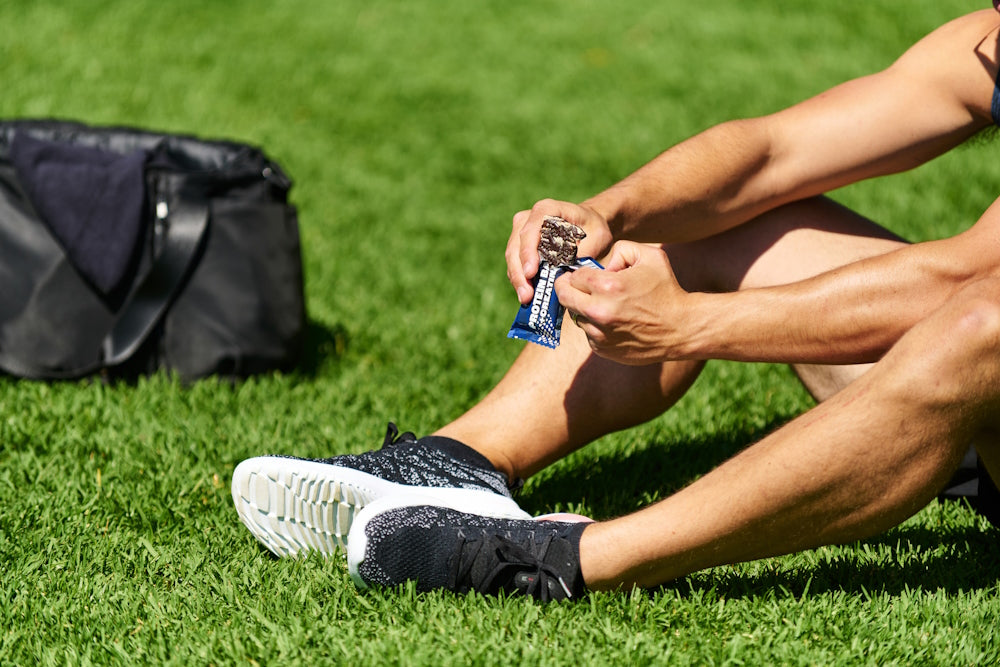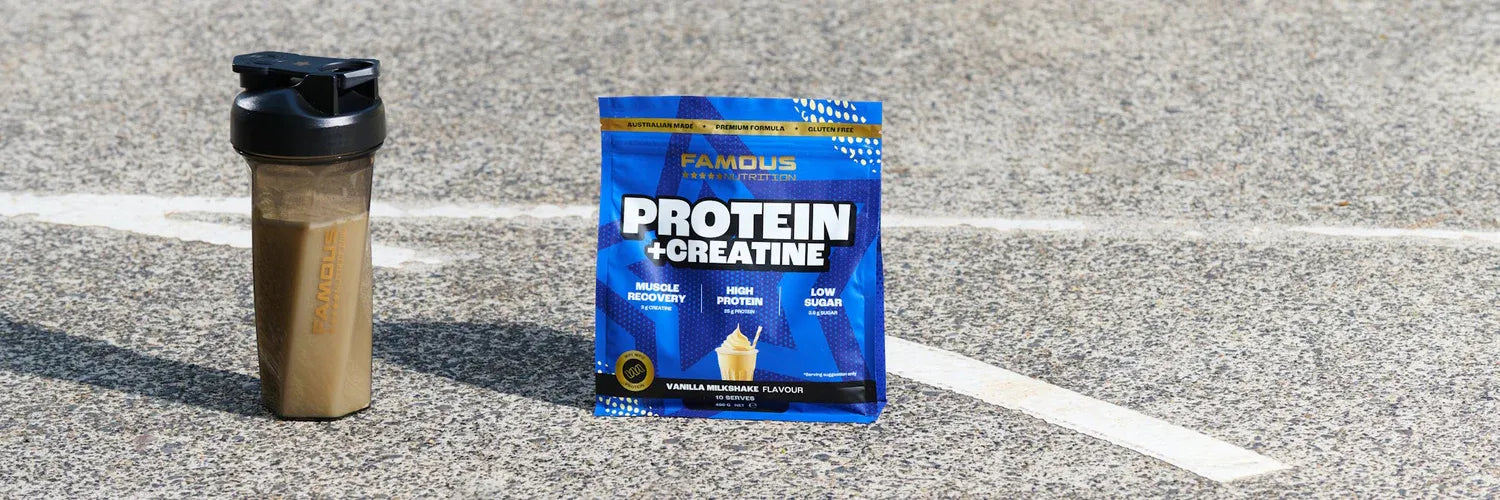
Understanding Chronic Dehydration: Symptoms and Prevention
By: Marc ManzoniShare
Are you constantly feeling tired, experiencing headaches, or struggling with your workouts? The culprit might be hiding in plain sight – chronic dehydration. It's a sneaky condition that affects more people than you might think. Whether you're a gym junkie, a weekend warrior, or someone who's just starting to take their health seriously, understanding chronic dehydration symptoms is crucial.
What's the Deal with Chronic Dehydration?
Let's start by understanding what chronic dehydration really is. Chronic dehydration occurs when your body consistently doesn't get enough water over a long period. This isn't just about feeling thirsty occasionally; it's a continuous lack of proper hydration that can significantly impact your health and fitness goals.
Unlike acute dehydration, which can occur suddenly after activities like intense workouts or spending time outside in hot weather, chronic dehydration develops gradually and can go unnoticed for a while. It's important to be aware of this ongoing condition and address it quickly to maintain optimal health.
What Are the Symptoms of Chronic Dehydration?
Alright, let's get into the nitty-gritty. How can you tell if you're not just temporarily parched, but actually chronically dehydrated? Here's what to look out for:
1. The Never-Ending Thirst
You know that feeling when you're so thirsty, you feel like you could drink an entire lake? Well, with chronic dehydration, that feeling becomes your new normal. Your mouth feels constantly dry and sticky, like you've been chewing on cotton balls. And no matter how much you drink, you never quite feel satisfied.
2. Fatigue That Just Won't Quit
Feeling like you're dragging yourself through the day? Chronic dehydration can leave you feeling tired, even if you're getting enough sleep. Your body simply doesn't have the resources it needs to keep you energised.
3. The Dehydration Headache
Ever had a headache that feels like your brain is trying to escape your skull? That could be a dehydration headache. When your body's low on fluids, your brain can actually shrink slightly and pull away from your skull, adding pressure to nerves and triggering pain.
4. Dark-Coloured Urine
Here's an easy way to check your hydration status: take a peek at your pee. If your water intake is adequate, your urine colour should look pale (like straw), rather than dark yellow, amber or darker.
5. Skin That's Lost Its Bounce
Try this quick test: pinch the skin on the back of your hand. Does it snap back quickly, or does it take its sweet time? If it's the latter, you might be dehydrated. Chronic dehydration can leave your skin feeling dry, flaky, and less elastic.

Symptoms of Chronic Dehydration: The Hidden Culprits
Beyond the most common signs, chronic dehydration can manifest in some surprising ways:
1. Constipation: When Things Get Stuck
Let's discuss a slightly awkward but important topic — your bowel movements. Chronic dehydration can lead to constipation, making your trips to the loo less frequent and more challenging. Your digestive system needs water to keep things moving smoothly, after all.
2. Muscle Cramps: The Unwelcome Workout Buddy
If you're hitting the gym regularly, you might notice more muscle cramps than usual. That's because dehydration messes with your electrolyte balance, leading to those painful, involuntary muscle contractions.
3. Mood Swings and Irritability
Feeling unusually grumpy? Chronic dehydration can affect your mood, making you more irritable and prone to mood swings. Research has even indicated that dehydrated people have higher risk of experiencing feelings of depression and anxiety.
The Long-Term Impact: Why You Should Care
Now, you might be thinking, "Okay, so I'm a bit thirsty. What's the big deal?" Well, chronic dehydration can have some serious long-term effects on your health. Let's break it down:
Can Dehydration Cause High Blood Pressure?
Surprisingly, yes! When you're dehydrated, your blood volume decreases. To compensate, your heart has to work harder to pump blood around your body. Over time, this extra effort can lead to increased blood pressure.
Compromised Kidney Function
Your kidneys are like the body's filtration system, and they need plenty of water to do their job properly. Chronic dehydration can put a lot of stress on these vital organs, potentially leading to kidney stones or other renal issues that require medical treatment.
Brain Fog
Ever had trouble concentrating or felt like your brain was working in slow motion? Chronic dehydration can affect your cognitive abilities, making it harder to focus, remember things, or make decisions.

How Long Can You Go Without Water?
Let's address the elephant in the room—how long can a person survive without water? The exact time varies depending on factors like climate, physical activity, and overall health, but generally, it's around three days.
But here's the thing — you'll start feeling the effects of dehydration long before that. Within just a few hours of not drinking water, you might start experiencing common symptoms of dehydration like thirst, dry mouth, and decreased urine output. After a day or two, you could be dealing with dizziness, fatigue, and confusion.
Keeping Hydrated: Your Game Plan
Let's talk about how to prevent chronic dehydration. Don't worry, it's not rocket science, but it does require a bit of effort and mindfulness. Here's your game plan to lower your risk of dehydration:
1. Water, Water Everywhere
The most obvious solution? Drink more water! Aim for about 2-3 litres of water a day, but remember, this can vary based on your activity level, climate, and individual needs. A good rule of thumb is to drink enough so that your urine is pale yellow.
2. Eat Your Water
Yes, you read that right! Many fruits and vegetables have high water content. Cucumbers, watermelon, strawberries, and leafy greens are all great options for helping to keep fluid levels in check.
3. Electrolyte Balance
If you're working out intensely or sweating a lot, plain water might not be enough. Consider using electrolyte supplements to replace the minerals you're losing through sweat. It's like giving your body a perfectly balanced hydration cocktail.
4. Set Reminders
In our hectic lives, it's easy to forget to drink water. Set reminders on your phone, or use a water tracking app. Some people even use marked water bottles to visually track their intake throughout the day. Find what works for you and stick with it.
5. Listen to Your Body
The human body is pretty smart – it'll tell you when it needs water. Feeling thirsty? That's your cue to drink up. Remember, by the time you feel thirsty, you already have mild dehydration. So don't wait – listen to your body and give it what it needs.

Hydration and Fitness: A Match Made in Heaven
For all you fitness buffs out there, proper hydration is absolutely crucial for optimal performance and recovery. Here's how to stay on top of your hydration game:
Before You Hit the Gym
Start your hydration efforts well before your workout. Aim to drink about 400-600ml of water 2-3 hours before exercising. This gives your body time to absorb the water and eliminate any excess.
During Your Sweat Session
Don't wait until you're parched to drink during your workout. Sip water regularly throughout your exercise routine. A good guideline is about 200-300ml every 15-20 minutes, especially if you're really working up a sweat.
Post-Workout Recovery
After you've crushed your workout, it's time to replenish those lost fluids. Water is great, but if you've had a particularly intense session, consider sports drinks or water with electrolytes to help counteract the water loss from excessive sweating.

Stay Hydrated and Smash Your Goals
So there you have it – everything you need to know about chronic dehydration symptoms and how to keep your body properly hydrated. Remember, staying hydrated isn't just about avoiding thirst; it's about giving your body the resources it needs to function at its best.
Whether you're a dedicated gym-goer, a casual exerciser, or someone who's just starting to take their health seriously, making hydration a priority is one of the best things you can do for your body.
It's simple, it's effective, and the benefits are enormous. So grab a glass of water and get ready to take on the day!



